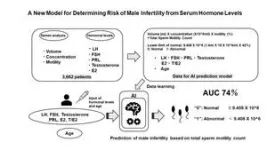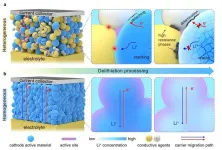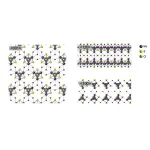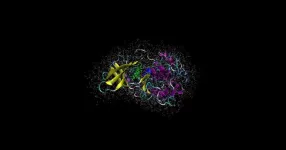AI predicts male infertility risk with blood test, no semen needed
Clinicians at Toho University in Japan developed an AI prediction model for male infertility risk determination without semen analysis. In the future, it may become an established screening method for male infertility in place of semen testing.
2024-07-31
(Press-News.org)
According to a World Health Organization (WHO) study (2017), about half of all infertility is due to men. Semen analysis is considered essential for diagnosis of male infertility, but is not readily available at medical institutions other than those specializing in infertility treatment, and there is a high threshold for receiving it.
In this study, a group led by Associate Professor Hideyuki Kobayashi of the Department of Urology, Toho University School of Medicine, Tokyo, Japan developed an AI model that can predict the risk of male infertility without the need for semen analysis by only measuring hormone levels in a blood test. AI creation software that requires no programming was used for the model, and the study was reported in the British scientific journal Scientific Reports. The AI prediction model was based on data from 3,662 patients and had an accuracy rate of approximately 74%. In particular, it was 100% correct in predicting non-obstructive azoospermia, the most severe form of male infertility.
The current study collected clinical data from 3,662 men who underwent semen and hormone testing for male infertility between 2011 and 2020. Semen volume, sperm concentration, and sperm motility were measured in the semen tests, and LH, FSH, PRL, testosterone, and E2 were measured in the hormone tests. T/E2 was also added. Total motile sperm count (semen volume X sperm concentration X sperm motility rate) was calculated from the semen test results. Based on the reference values for semen testing in the WHO laboratory manual for the examination and processing of human semen, 6th edition (2021), a total motile sperm count of 9.408 X 106 (1.4 mL X 16 X 106/mL X 42%) was defined as the lower limit of normal, assigning a value of “0” if the total motility sperm count for an individual patient was above 9.408 X 106 and a value of “1” when it was below. The accuracy of the AI model was approximately 74%.
Next, the AI model was validated using data from 2021 and 2022 for which both semen and hormone tests were available. Using the data of 188 patients in 2021, the accuracy was about 58%, while accuracy using the data for 166 patients in 2022 was about 68%. However, non-obstructive azoospermia could be predicted with a 100% accuracy rate in both 2021 and 2022.
According to Associate Professor Kobayashi, "This AI prediction model is intended only as a primary screening step prior to semen testing, and while it is not a replacement for semen testing, it can be easily performed at facilities other than those specializing in infertility treatment.” He added, "The AI prediction model used in this study was particularly accurate in predicting non-obstructive azoospermia, which is a severe form of azoospermia. When the prediction model detects abnormal values, since patients may possibly have non-obstructive azoospermia, this should be a trigger for them to undergo detailed testing at a specialist infertility clinic and receive appropriate treatment.”
CreaTact, Inc. (Mito City, Ibaraki Prefecture, Japan; President: Iori Nakaniwa) is conducting software development and data analysis to develop a commercial original AI prediction model for the above purpose. “In the future, we hope that clinical laboratories and health checkup centers will use our AI prediction model to screen for male infertility, thereby making testing for male infertility, more accessible by overcoming hurdles to it," said Associate Professor Kobayashi.
The study was published in Scientific Reports on 31 July, 2024.
END
[Attachments] See images for this press release:


ELSE PRESS RELEASES FROM THIS DATE:
2024-07-31
Researchers at the Qingdao Institute of Bioenergy and Bioprocess Technology (QIBEBT) of the Chinese Academy of Sciences, along with collaborators from leading international institutions, have introduced an innovative cathode homogenization strategy for all-solid-state lithium batteries (ASLBs).
This new approach, detailed in their recent publication in Nature Energy on July 31, significantly improves the cycle life and energy density of ASLBs, representing an important advancement in energy storage technology.
Current ASLBs face challenges due to heterogeneous composite cathodes, which require ...
2024-07-31
Glioblastomas are highly aggressive, usually incurable brain tumors. If all therapeutic options are exhausted, patients have an average life expectancy of less than two years. Now researchers from the German Cancer Consortium (DKTK) at the West German Tumor Center Essen have made a surprising discovery: in the vicinity of glioblastomas, they found islands of highly potent immune cells in the neighboring bone marrow of the skull, which play a central role in defending against cancer. The new data may open up prospects ...
2024-07-31
Early detection of Alzheimer’s disease-related changes in Parkinson's disease and dementia with Lewy bodies could be made possible by monitoring the amyloid-β (Aβ) and phosphorylated tau (p-tau) proteins. Researchers at Nagoya University in Japan also discovered the blood levels of neurofilament light chain (NfL) protein is elevated at an early stage of Parkinson's disease (PD) and dementia with Lewy bodies (DLB). This discovery may provide a method to identify potential patients and to make early interventions. The findings were published in npj Parkinson’s Disease.
The two forms of Lewy body disease are PD and DLB. ...
2024-07-31
TORONTO, ON – A recent study of more than 2,700 older Canadians reported older adults with diabetes faced a heightened risk of depression during the COVID-19 pandemic. In this cohort, almost 50% of those who had a pre-pandemic history of depression experienced depression during the pandemic.
Those who experienced loneliness were among the most impacted.
“During the pandemic, loneliness almost tripled the risk of depression in older adults with diabetes,” says clinical pharmacist and first author ZhiDi Deng. “This not only highlights ...
2024-07-31
In a hopeful sign for demand for more safe, effective antibiotics for humans, researchers at The University of Texas at Austin have leveraged artificial intelligence to develop a new drug that already is showing promise in animal trials.
Publishing their results in Nature Biomedical Engineering, the scientists describe using a large language model—an AI tool like the one that powers ChatGPT—to engineer a version of a bacteria-killing drug that was previously toxic in humans, so that it would be safe to use.
The prognosis for patients ...
2024-07-31
For Embargoed Release: July 31, 2024 at 3:00 am ET USA
Media Contact: Katelyn Deckelbaum, katelyn.deckelbaum@gwu.edu and Kathy Fackelmann, kfackelmann@gwu.edu
Study Finds Many Cocoa Products Contaminated by Heavy Metals
Dark chocolate lovers may want to limit their consumption to an ounce a day to stay on the safe side, according to the authors
WASHINGTON (July 24, 2024) - A new study from George Washington University found a disquieting percentage of cocoa products in the U.S. contain heavy metals that exceed guidelines, including higher concentrations in organic products.
GW researchers analyzed ...
2024-07-31
Monarch butterflies, with their striking orange and black wings, are some of the most recognizable butterflies in North America. But they're in trouble. Monarch caterpillars can only eat the leaves of milkweed, a native wildflower. As milkweed has disappeared, so have the monarchs, to the point that they're at risk of extinction. Research shows that planting milkweed in home gardens can add significant monarch habitat to the landscape. In a new study in the journal Frontiers in Ecology and Evolution, ...
2024-07-31
Tokyo, Japan – Researchers from Tokyo Metropolitan University have created sheets of transition metal chalcogenide “cubes” connected by chlorine atoms. While sheets of atoms have been widely studied e.g. graphene, the team’s work breaks new ground by using clusters instead. The team succeeded in forming nanoribbons inside carbon nanotubes for structural characterization, while also forming microscale sheets of cubes which could be exfoliated and probed. These were shown to be an excellent catalyst for generating hydrogen.
Two-dimensional materials are a breakthrough in nanotechnology, realizing ...
2024-07-31
LOS ANGELES — Keck Hospital of USC earned five stars, the highest rating possible, on the Centers for Medicare & Medicaid Services (CMS) 2024 quality star rating report. This is the second year in a row the hospital has received five stars.
Only approximately 16% of hospitals across the country, 483 out of 3,076, received five stars out of a one-to-five-star rating system.
“Receiving this prestigious recognition for the second time in a row validates the hospital’s continuous commitment to patient safety and best patient outcomes and is a testament to the dedication and hard ...
2024-07-31
Led by University of Melbourne theoretician and HPC expert Associate Professor Giuseppe Barca, a research team has achieved the first quantum simulation of biological systems at a scale necessary to accurately model drug performance.
Utilising the unprecedented “exascale” power of the Frontier supercomputer at the Oak Ridge Leadership Computing Facility in Tennessee, US, the team has developed groundbreaking software capable of accurately predicting the chemical reactions and physical properties of molecular systems comprising ...
LAST 30 PRESS RELEASES:
[Press-News.org] AI predicts male infertility risk with blood test, no semen needed
Clinicians at Toho University in Japan developed an AI prediction model for male infertility risk determination without semen analysis. In the future, it may become an established screening method for male infertility in place of semen testing.







